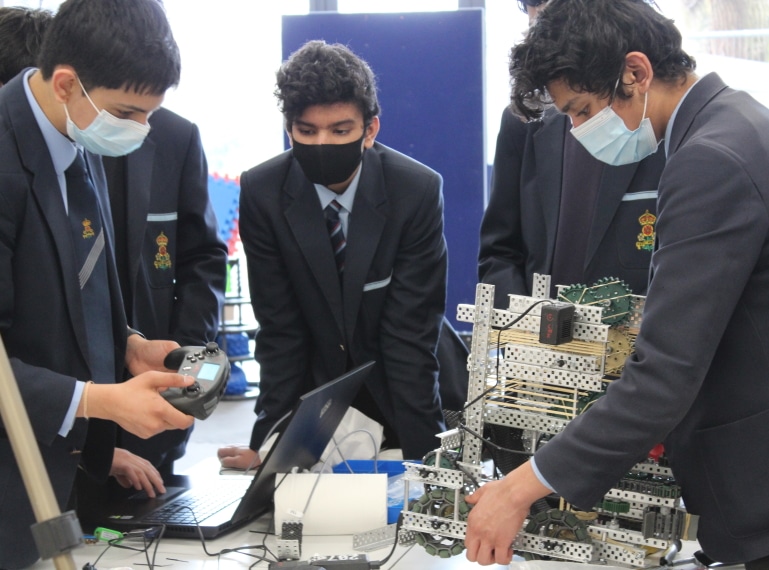
After a busy spring of online competitions, the Summer Term opens with all four QE teams now qualified for this year’s VEX EDR Robotics World Championship.
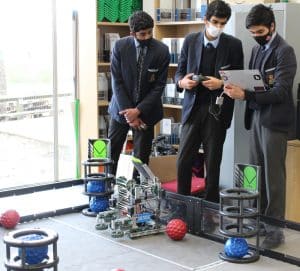 Hyperdrive and Override first reached the virtual international finals next month and then Tempest and Hybrid safely made it through, too, reports QE’s Head of Technology Michael Noonan.
Hyperdrive and Override first reached the virtual international finals next month and then Tempest and Hybrid safely made it through, too, reports QE’s Head of Technology Michael Noonan.
Their achievement capped a term that saw the School host two successful international remote robotics events.
Head of Technology Michael Noonan said: “Both events saw the QE teams demonstrating great problem-solving, teamwork and communication skills as they made lots of last-minute adjustments online in order to optimise their robots or deal with technical faults.
“Boys are very happy that they can physically work on their robots now we are back in School. Everyone is looking forward to the world championship, and, with restrictions now beginning to ease, we are all hoping for more events before the end of the year, too.”
Teams from Canada, Taiwan, the US and UK, including one from QE, took part in the first QE-hosted event, which was held during lockdown.
The second QE event was a bigger remote skills tournament close to the end of the Spring Term. Twelve places were available, three-quarters of which were reserved for UK teams. Hyperdrive, competing in their first event, represented QE, together with Override and Tempest. Hybrid were unavailable. The QE teams took on five UK and three US teams close to the end of the Spring Term.
Each robot first had to pass an inspection before taking the field. Conducted over Zoom, the competition involved each team having 30 minutes to try to complete three ‘driver’ runs (where the robot is controlled by a driver using a remote control) and three ‘programming’ runs (where the robot moves around the field based on pre-programming – so once it starts there is nothing more you can do).
When competing on their own in such events (as opposed to directly against another team on the field of play, as would happen in an ‘in-person’ competition), the aim is to amass the highest score by picking up red balls and tipping them into the goals, while also ‘de-scoring’ as many blue balls as possible, dislodging these from the bottom of the goal stacks.
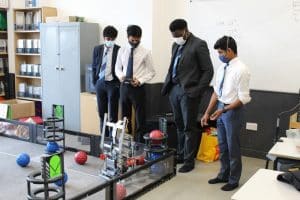 The winners were one of the two teams competing from Galion High School from the small city of Galion in the state of Ohio; they scored 110 points in the driving section and 45 points in the autonomous control section. The remaining US team were an independent team from Newnan, Georgia, who were placed second in the competition, with a score of 114 for driving and 28 for autonomous control (and were competing from a garage at 6.30am local time!).
The winners were one of the two teams competing from Galion High School from the small city of Galion in the state of Ohio; they scored 110 points in the driving section and 45 points in the autonomous control section. The remaining US team were an independent team from Newnan, Georgia, who were placed second in the competition, with a score of 114 for driving and 28 for autonomous control (and were competing from a garage at 6.30am local time!).
The highest-placed UK team went to an independent team, which included one QE pupil, Year 11’s Yash Shah.
QE’s Tempest team came fourth with their highest score to date – a “highly respectable 122 points in total; 95 in driver and 27 in programming”, said Mr Noonan.
The event was administered by Mr Noonan, with Technology teachers Stephanie Tomlinson and Shane Maheady, and Technology assistant Jemima Snelson, handling the refereeing and scorekeeping.
Competition continued even on the very last day of term, when all the QE teams competed in a UK live remote skills event hosted by the Vex Robotics Training Academy in Warrington. Tempest and Override came third and fourth, with total scores of 132 and 113 respectively.

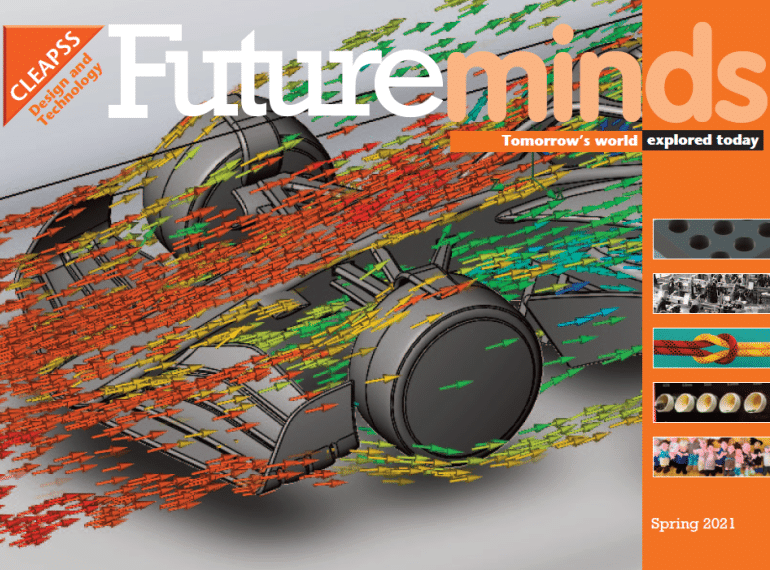
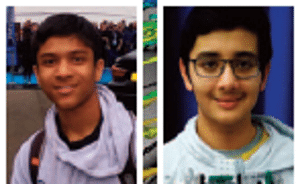 The Sixth Form engineers looked into how CFD (computational fluid dynamics) can be used to create a virtual wind tunnel for an F1 car design. And an article about their work penned by the society’s leaders, Nirmay Jadhav and Ansh Jaiswal, features prominently in the current edition of Futureminds, the magazine produced by CLEAPPS*, a national science and technology education advisory service. In the article, Nirmay and Ansh explain why they established the society, the activities they have already held and what they aim to do in the future.
The Sixth Form engineers looked into how CFD (computational fluid dynamics) can be used to create a virtual wind tunnel for an F1 car design. And an article about their work penned by the society’s leaders, Nirmay Jadhav and Ansh Jaiswal, features prominently in the current edition of Futureminds, the magazine produced by CLEAPPS*, a national science and technology education advisory service. In the article, Nirmay and Ansh explain why they established the society, the activities they have already held and what they aim to do in the future.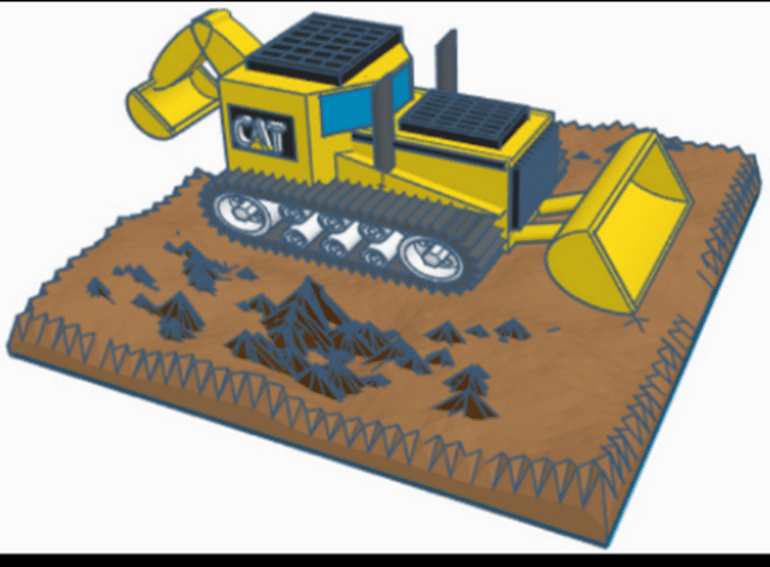
 Judges in the Polar Cloud CAT Inc. Design Challenge congratulated him for combining creativity with practicality in his design, and he also won appreciation from other users of American manufacturer Polar 3D’s Polar Cloud online 3D design platform.
Judges in the Polar Cloud CAT Inc. Design Challenge congratulated him for combining creativity with practicality in his design, and he also won appreciation from other users of American manufacturer Polar 3D’s Polar Cloud online 3D design platform. “Firstly, at the back, there is a retractable claw which is able to lift five tonnes. This was created as a feature to utilise when carrying more rubble or dirt. The treads for the vehicle are intended to be made out of wire mesh and rubber to ensure balance and protection, which is a necessity for users who require some means of transportation in more secluded regions.”
“Firstly, at the back, there is a retractable claw which is able to lift five tonnes. This was created as a feature to utilise when carrying more rubble or dirt. The treads for the vehicle are intended to be made out of wire mesh and rubber to ensure balance and protection, which is a necessity for users who require some means of transportation in more secluded regions.”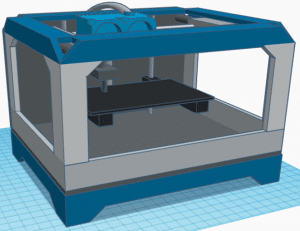 Judges stipulated that entries should not only fulfil criteria such as printability, design execution and creativity, but also prioritised those, such as Keon’s, which garnered higher numbers of ‘likes’ on the online platform.
Judges stipulated that entries should not only fulfil criteria such as printability, design execution and creativity, but also prioritised those, such as Keon’s, which garnered higher numbers of ‘likes’ on the online platform.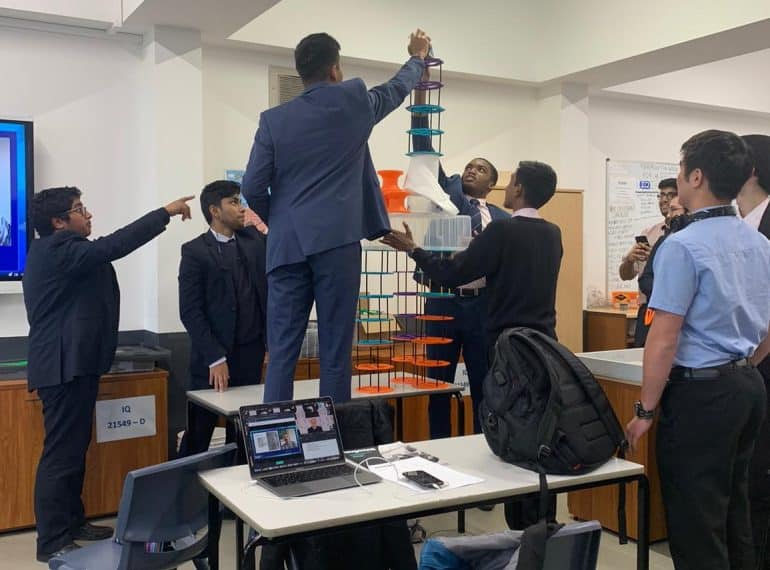
 Sixth-formers have already enjoyed stimulating day-long sessions on Medicine in Action, Chemistry in Action, Product Design in Action and Geography in Action, with a similar event for Biology due to take place in December.
Sixth-formers have already enjoyed stimulating day-long sessions on Medicine in Action, Chemistry in Action, Product Design in Action and Geography in Action, with a similar event for Biology due to take place in December.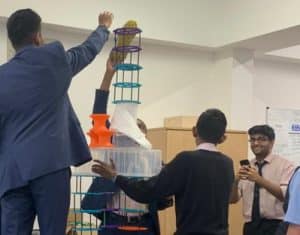 The Resourcefulness and design lecture, delivered by Kingston University Senior Lecturer Pascal Anson, stimulated a practical activity, pictured. “Here we see some examples of structures which were resourcefully developed by the students using VEX IQ and EDR Robotics game elements – great thinking on their feet!” added Mr Noonan.
The Resourcefulness and design lecture, delivered by Kingston University Senior Lecturer Pascal Anson, stimulated a practical activity, pictured. “Here we see some examples of structures which were resourcefully developed by the students using VEX IQ and EDR Robotics game elements – great thinking on their feet!” added Mr Noonan.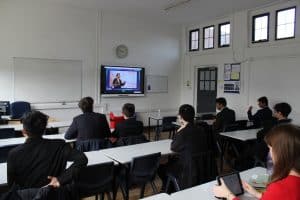 The Geography lectures were similarly wide-ranging. One talk, entitled Lessons in sustainability: An explorer’s tale, was by Jason Lewis, the first person to circumnavigate the earth without using motors or sails. Another featured academic Martin Evans, from the University of Manchester, speaking on Landscape Systems in the Anthropocene. And Emily Parry, Head of Geography, highlighted lectures on water insecurity and on how COVID-19 has impacted the Pacific Islands.
The Geography lectures were similarly wide-ranging. One talk, entitled Lessons in sustainability: An explorer’s tale, was by Jason Lewis, the first person to circumnavigate the earth without using motors or sails. Another featured academic Martin Evans, from the University of Manchester, speaking on Landscape Systems in the Anthropocene. And Emily Parry, Head of Geography, highlighted lectures on water insecurity and on how COVID-19 has impacted the Pacific Islands.
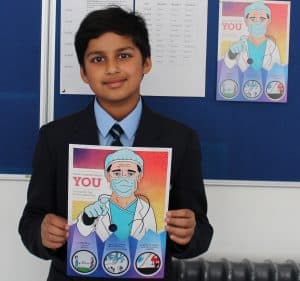 Anik Singh won the secondary school category of the contest with his watercolour highlighting some key coronavirus safety precautions.
Anik Singh won the secondary school category of the contest with his watercolour highlighting some key coronavirus safety precautions.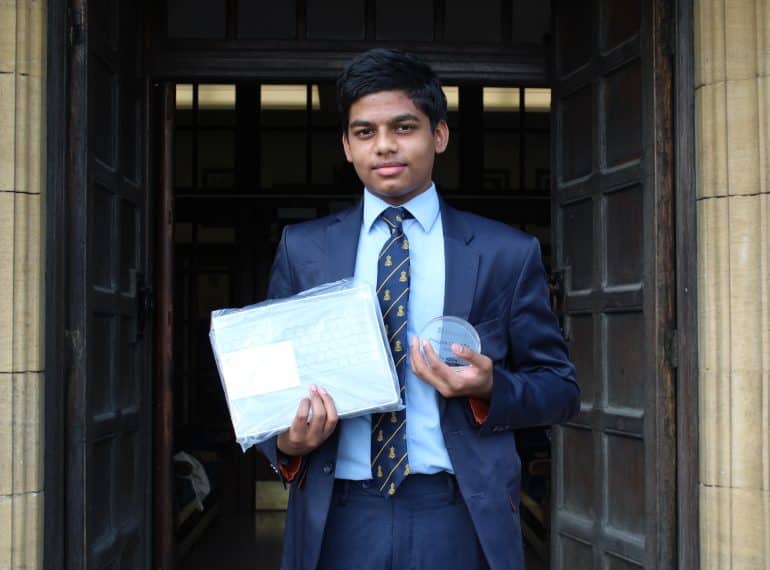
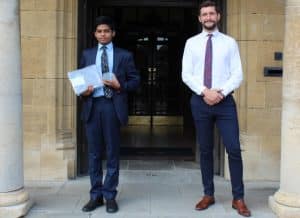 Congratulating him, QE’s Head of Technology Michael Noonan said: “Ashwin is an outstanding Technology student who has had a tremendous year. Despite the challenges of the school closure, or perhaps even taking advantage of them, he threw himself into many competitions using his vast technological experience. He was successful in eight competitions on a local, national and, with his latest win, international level. He should be extremely proud of his achievements this year, and he undoubtedly has a bright future ahead of him!”
Congratulating him, QE’s Head of Technology Michael Noonan said: “Ashwin is an outstanding Technology student who has had a tremendous year. Despite the challenges of the school closure, or perhaps even taking advantage of them, he threw himself into many competitions using his vast technological experience. He was successful in eight competitions on a local, national and, with his latest win, international level. He should be extremely proud of his achievements this year, and he undoubtedly has a bright future ahead of him!”